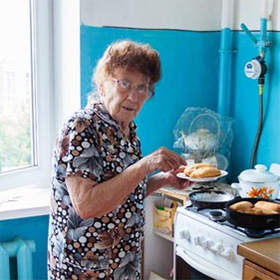Recent Stories
- Businesses urged to tap into science and technology young talent
- Digital relay baton enables remote crowd cheering of athletes
- Health Innovation Campus moves a step closer
- £7.1 million R&D boost for North West businesses
- Centre of excellence created for the next industrial revolution
- Artificial intelligence toolkit spots new child sexual abuse media online
- Strategic partnership set to help plug cyber security skills gap
- What your choice of smartphone says about you
- InfoLabTree: Discover the Story
- novi.digital Launch Event - 'An Event to Help Businesses Grow Online'
RSS Feeds
RSS feeds can deliver the latest InfoLab21 news and events direct to your browser without you having to visit the website.
In most browsers you can click on an RSS link and choose to subscribe to the feed to add it to your favourites or bookmarks.
Lancaster University to play major role in NHS innovation

Patients in Lancashire will be among the first to benefit from a major new drive to modernise how the NHS delivers care.
Lancaster Health Hub, a NHS/University partnership headed by Lancaster University, has co-ordinated a successful application for a pioneering ‘Test Bed’, hosted by Lancashire Care NHS Foundation Trust and involving Lancaster University, local NHS organisations, lead technology partner Philips, social enterprises and digital health businesses.
This project is an important building block towards the forthcoming development of a £41m Health Innovation Campus at Lancaster University focused on fostering collaboration between businesses, public and third sector organisations and community user groups, to develop new products, processes and services directed at improving health and social care.
Professor Christine Milligan, Director of Lancaster University Centre for Ageing Research together with colleagues from the university, will lead on the evaluation of the Lancashire and Cumbria Test Bed.
Together all these organisations form the Lancashire and Cumbria Innovation Alliance (LCIA), which over the next two years will enable frontline health and care workers in Lancashire to use a range of technologies and interventions to support frail and elderly and people living with long-term conditions and dementia to be cared for outside hospital with the intention of improving their outcomes.
Keeping people well in the community will increase the quality of care provided and patient outcomes, create capacity within hospitals, and release efficiencies by reducing the input required from wider health and social care services.
Professor John Goodacre, Director of the Lancaster Health Hub and Associate Dean for Engagement at Lancaster University said:
"This award provides a wonderful opportunity for our local NHS / University Partnership to work closely with colleagues in Philips Health Systems and in other digital health businesses to deliver a very novel and important programme of work which will have a huge impact on many people's lives across the area.”
“It also demonstrates that the advanced professional skills and expertise housed within Lancaster University and its NHS partner organisations are nationally recognised, and shows the capability of the Partnership for attracting substantial investment and resource into the area.”
The project, along with six others from around the country, was unveiled by NHS Chief Executive Simon Stevens at the World Economic Forum in Davos.
It is part of the first wave of NHS ‘Test Beds’ - collaborations between the NHS and innovators which aim to harness technology to address some of the most complex issues facing patients and the health service. Successful innovations will then be available for other parts of the country to adopt and adapt to the particular needs of their local populations.
He said: "Over the next decade major health gains won’t just come from a few 'miracle cures', but also from combining diverse breakthroughs in fields such as biosensors, medtech and drug discovery, mobile communications, and AI computing.
“Our new NHS Test Beds programme aims to cut through the hype and test the practical benefits for patients when we bring together some of these most promising technologies in receptive environments inside the world's largest public, integrated health service."
Lancaster Health Hub includes: Lancaster University, Blackpool Teaching Hospitals NHS Foundation Trust, Calderstones Partnership NHS Foundation Trust, Lancashire Care NHS Foundation Trust, Lancashire Teaching Hospitals NHS Foundation Trust, University Hospitals of Morecambe Bay NHS Foundation Trust, University of Cumbria, Healthwatch Lancashire, Fylde and Wyre Clinical Commissioning Group and Lancashire North Clinical Commissioning Group.
For further details, contact Dr Mandy Dixon, Senior Manager for Business Engagement, Lancaster Health Hub, Tel. 01524 593144 or email m.dixon4@lancaster.ac.uk
Tue 26 January 2016



